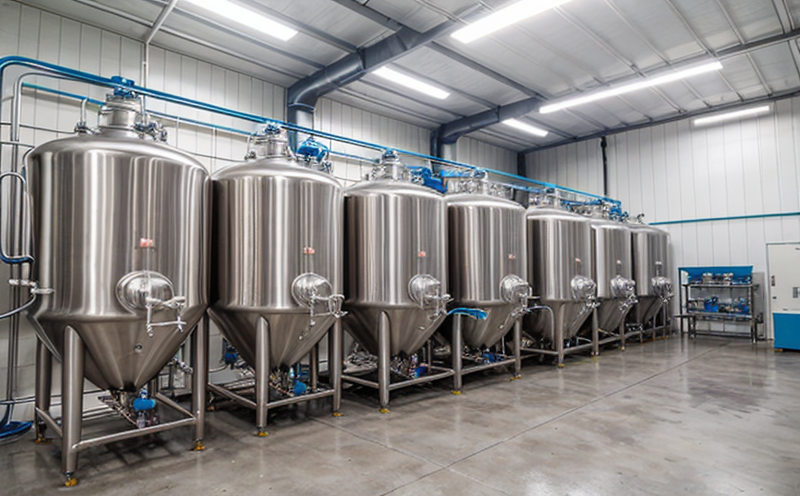EP 2.6.13 Specified Microorganisms Testing in Biotech Processes
The EP 2.6.13 standard is a critical part of ensuring the safety and efficacy of biotechnological products, particularly those involving fermentation processes. This standard focuses on testing for specified microorganisms that could potentially impact product quality or introduce contamination risks. In industrial settings where biotechnology plays a crucial role, such as in pharmaceuticals, biofuels, and food production, the presence of unintended microorganisms can lead to significant issues.
The EP 2.6.13 standard is aligned with broader international guidelines like ISO standards for microbiological testing, which emphasize the need for robust quality control measures. By adhering to these protocols, laboratories ensure that biotechnological processes are reliable and consistent, thereby protecting both the integrity of the products and public health.
At Eurolab, we specialize in providing comprehensive EP 2.6.13 testing services tailored to meet the unique needs of industrial fermentation and biotechnology microbiology sectors. Our expertise lies in ensuring that all relevant microorganisms are identified and quantified accurately, which is essential for maintaining product quality and compliance with regulatory standards.
Our approach involves a multi-step process starting from specimen collection and preparation, through culture-based methods where appropriate, to advanced molecular techniques such as PCR when necessary. This comprehensive method ensures that even the most elusive or difficult-to-detect microorganisms are identified. Our state-of-the-art laboratory facilities and experienced technical staff guarantee precision and reliability in every test.
Real-world applications of this testing include monitoring fermentation tanks during production runs, validating sterilization processes, and ensuring the stability of bioprocesses over time. In a typical scenario, our team might start by collecting samples directly from the fermentation vessel before any product is harvested or released into distribution channels. These samples are then processed according to strict protocols laid out in EP 2.6.13.
The testing process includes both qualitative and quantitative assessments, ensuring that not only is contamination detected but also its extent can be quantified accurately. This information is invaluable for process optimization and quality assurance purposes. For instance, if contamination by a specific microorganism is identified, corrective actions can immediately be implemented to prevent further issues.
Moreover, our service covers the identification of both known and novel microorganisms that may pose risks or opportunities within biotechnological processes. This proactive stance allows us to anticipate potential challenges and capitalize on emerging trends in biotechnology research.
Applied Standards
The EP 2.6.13 standard is part of a broader framework that includes several internationally recognized standards such as ISO 17025, which sets criteria for the competence of testing and calibration laboratories; ISO/TS 22196:2021, dealing with quality management systems specific to biotechnological products; and IEC 60345, relevant to safety aspects in biotechnology.
These standards ensure that our testing methods are consistent, reliable, and compliant with global best practices. By adhering strictly to these guidelines, we can provide results that are universally accepted and trusted by regulatory bodies worldwide.
Scope and Methodology
| Aspect | Description |
|---|---|
| Sample Collection | Collection of samples directly from fermentation tanks or other bioprocess environments. |
| Specimen Preparation | Precise preparation to ensure that the microorganisms are viable and intact for analysis. |
| Culture-Based Methods | Traditional methods using selective media to isolate and identify microorganisms. |
| Molecular Techniques | Incorporation of PCR and other molecular techniques for accurate identification, especially in complex samples. |
| Quantitative Analysis | Determination of the concentration levels of microorganisms to assess risk or opportunity. |
| Validation and Reporting | Verification of test results against established criteria, followed by detailed reporting for clients. |
Eurolab Advantages
At Eurolab, our commitment to excellence in EP 2.6.13 testing is reflected in several key advantages:
- State-of-the-Art Facilities: Our laboratories are equipped with cutting-edge technology and equipment, ensuring the highest standards of accuracy and precision.
- Experienced Staff: Our team comprises highly qualified professionals with extensive experience in biotechnology microbiology.
- Comprehensive Services: We offer a full range of services from initial sample collection to final reporting, streamlining the process for our clients.
- Regulatory Compliance: Our methods and protocols are fully compliant with EP 2.6.13 as well as other relevant international standards like ISO 17025.





